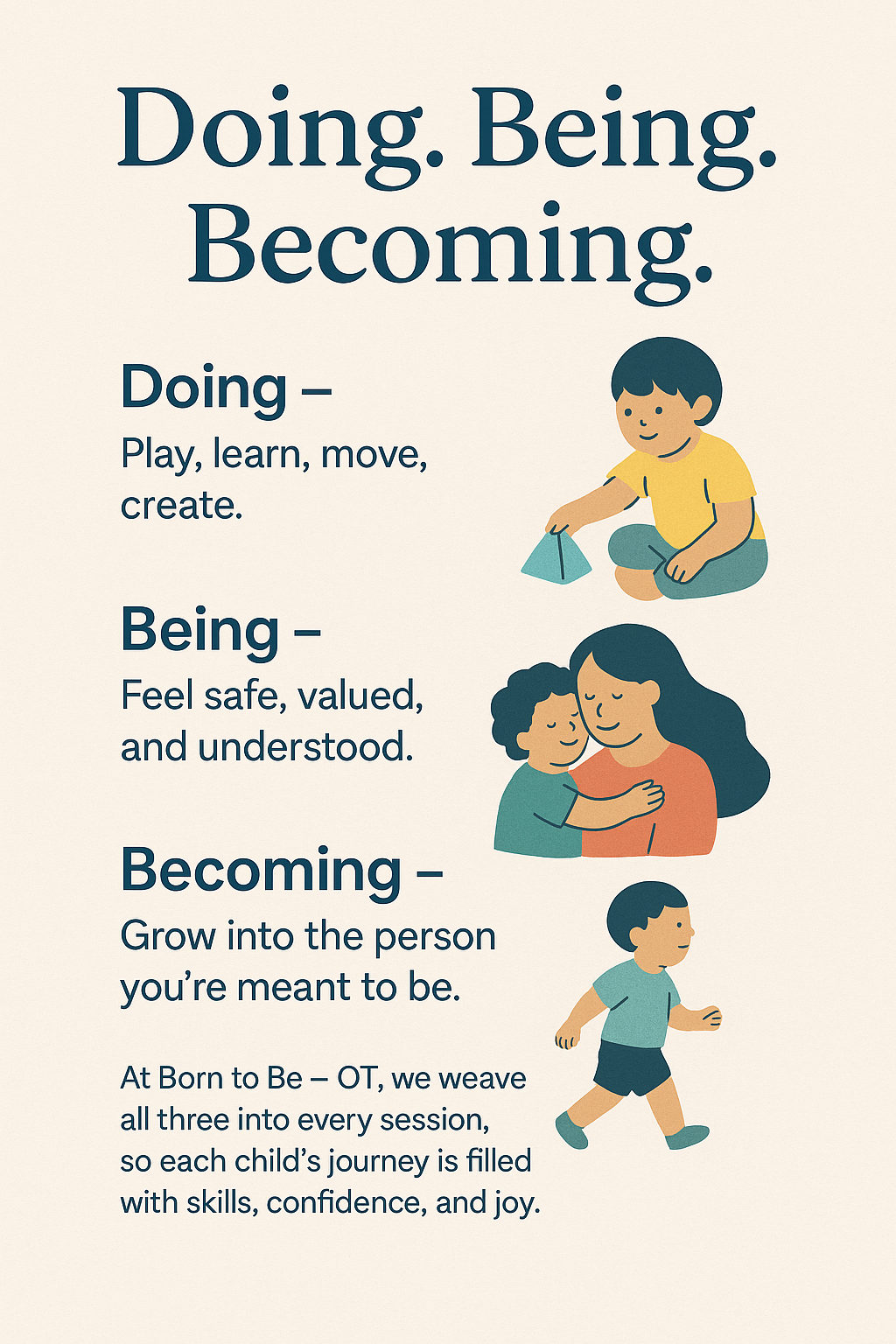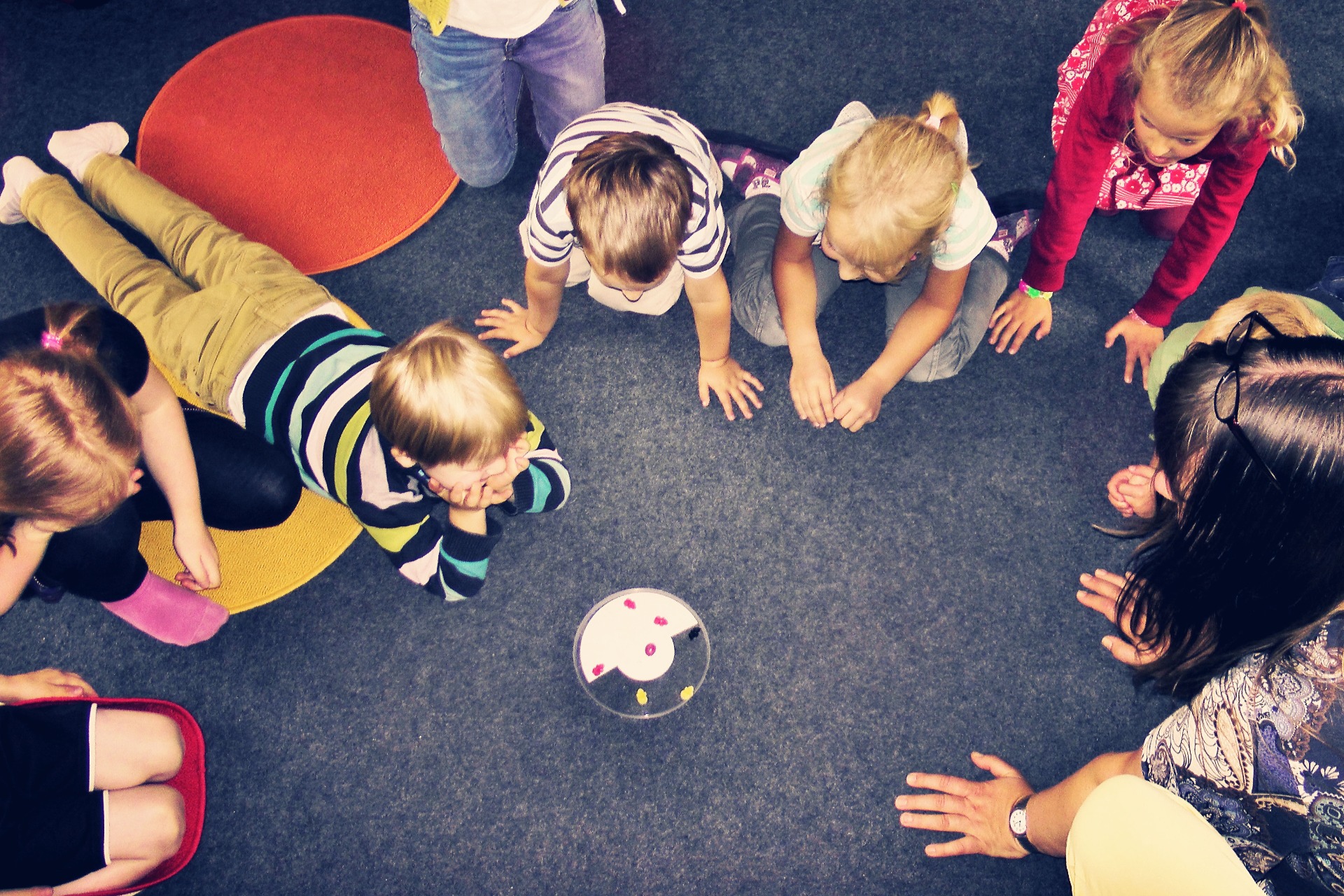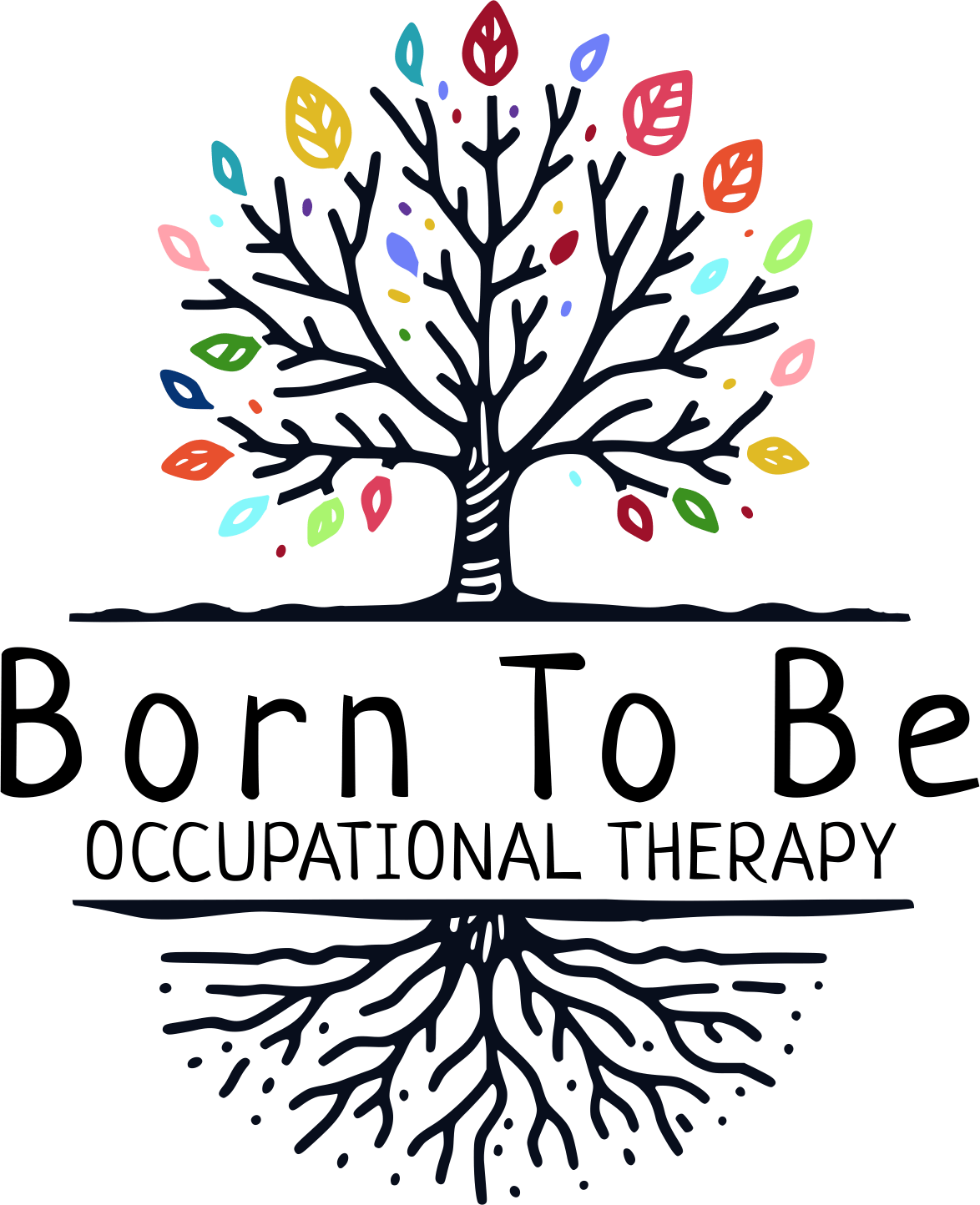Why Occupational Therapy?

Developmental Delay
Children develop at their own pace, but if they are finding it harder to reach key milestones, OT can help.
You might notice:
- Delays in sitting, crawling, walking
- Difficulty learning at an age-appropriate level
- Play or social skills developing more slowly than expected
Visual Processing
Visual processing is how the brain makes sense of what the eyes see. Signs of difficulty might be:
- Losing their place when reading or copying from the board
- Difficulty recognising letters or copying shapes
- Struggling to find objects in a busy environment
- Problems with spacing or sizing letters
Learning & Attention
OT can help children who struggle to concentrate, stay organised, and manage school tasks. Signs might include:
- Easily distracted or unable to focus
- Difficulty following instructions
- Fatigue during schoolwork
- Impulsivity or hyperactivity
- Trouble learning new skills or keeping up with peers
Does my child need Occupational Therapy?
If your child finds certain everyday activities hard — whether at home, school, or in play — occupational therapy can help them build the skills, confidence, and independence they need to thrive.
At Born to Be – OT, I work alongside you to understand your child's strengths and challenges, and to create a plan that supports them in a positive, practical way.
Gross Motor Skills (Movement, Strength & Balance)
Gross motor skills involve larger muscle movements that help with strength, coordination, and balance. You might see:
- Clumsiness or appearing uncoordinated
- Difficulty climbing stairs or riding a bike
- Poor ball skills
- Low or high muscle tone
- Avoiding playground activities or games
- Fear of feet leaving the ground
Fine Motor Skills
Fine motor skills are the small movements of the hands, fingers, and face that we use for everyday tasks. Difficulties here might look like:
- Struggling with holding a pencil or using scissors
- Challenges with zips, buttons, or shoelaces
- Poor handwriting or avoiding drawing/colouring
- Trouble using cutlery
- Difficulty manipulating toys and puzzles

If any of these sound familiar, occupational therapy could make a real difference.
Together, we can create strategies, adapt environments, and provide playful, meaningful experiences that help your child feel safe, capable, and ready to take on life.
